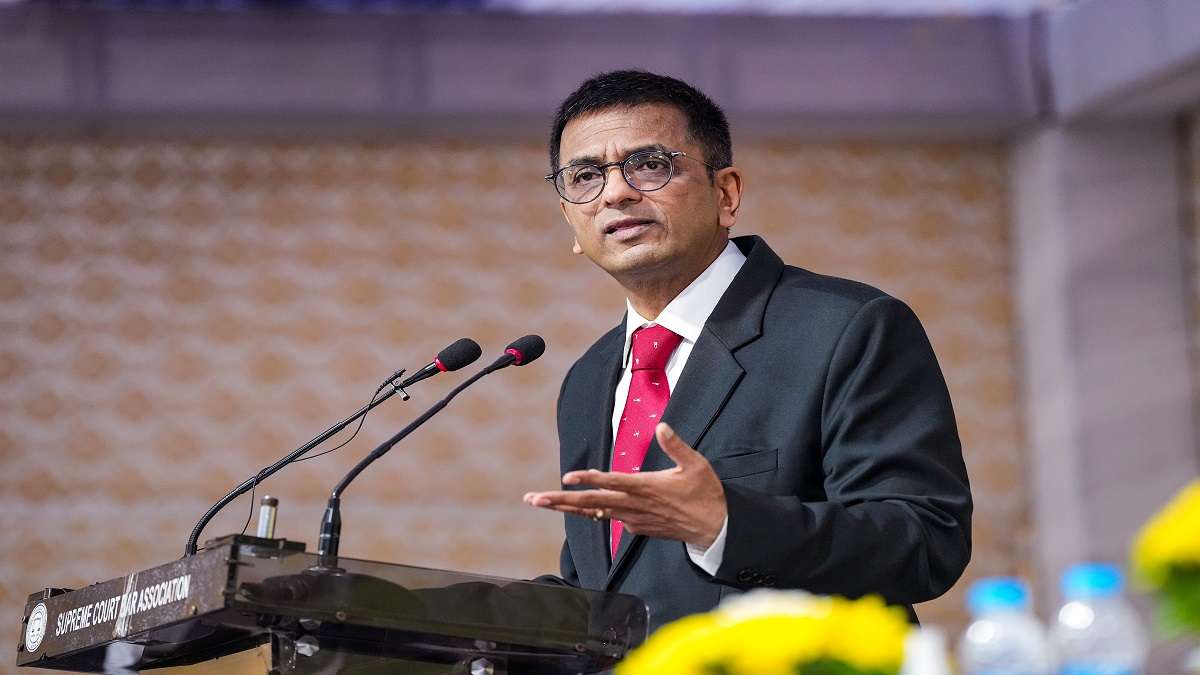CJI Chandrachud on court cases: Chief Justice of India (CJI) DY Chandrachud on Saturday (February 4) said that for a court, every case is important and there are no big or small cases and also highlighted that the top court heard over three lakh cases during COVID-19 pandemic time.
Addressing a gathering to commemorate the 73rd anniversary of the Supreme Court of India, the CJI said, "For the Court, there are no big or small cases beacuse every matter is important. It is in the seemingly small and routine matters involving the grievances of citizens that issues of constitutional and jurisprudential importance emerge. In attending to such grievances, the Court performs a plain constitutional duty, obligation, and function."
CJI Chandrachud made these remarks while addressing a gathering to commemorate the 73rd anniversary of the Supreme Court of India. Chief Justice of Singapore Supreme Court Sundaresh Menon also attended the program and delivered a lecture on "The Role of the Judiciary in a Changing World".
Court working procedure amid COVID-19 pandemic:
Chandrachud also mentioned how the court adopted innovative techniques to reach out to people, especially during the COVID-19 pandemic and said, "Between March 23, 2020, and October 31, 2022, the top court alone heard 3.37 lakh cases through video conferencing."
He also mentioned that the court is allowing hybrid mode now to attend proceedings from any corner. "In the recent budget, the Government of India announced the provision of Rs 7000 crore for phase III of the e-Courts project," CJI said.
He further said that this will help to enhance the accessibility of the judicial institutions and improve the efficiency of the justice delivery system in India. "Such endeavours will ensure that the Court truly reaches out to every citizen of our country," he said.
Quoting the first Chief Justice of India HJ Kania, CJI said that the Supreme Court would play an important role in building up the nation. He also said that in the past few years, the Court has furthered the transformative vision of the Constitution by recognizing and protecting fundamental rights such as the right to privacy, decisional autonomy, and sexual and reproductive choices.
Chandrachud said that the court has emerged as a strong proponent of gender equality whether it be in its interpretation of the laws of inheritance or securing the entry of women in the armed forces.
CJI on death penalty & other issues:
CJI also highlighted the guidelines related to the death penalty and the various mitigating and aggravating circumstances that a judge should take into account before awarding the death sentence and psychiatric assessment of death row convicts-humanising influence on the law. Thus, the Court has sought to use the language of the Constitution to humanize law and act as the protector and defender of fundamental rights and liberties, CJI said.
CJI also mentioned about the significant changes relating to the adoption of legislation such as the Competition Law and Insolvency and Bankruptcy Code. Recalling the foundation of the SC, he said that the Supreme Court came into being on January 28, 1950, two days after India adopted its Constitution and became an independent Sovereign Republic, and now it serves the world's most populous democracy and is in true aspects a 'people's court' because it is a collective heritage of the people of India.
(With ANI inputs)
ALSO READ: Centre to soon clear five names recommended by Collegium for Supreme Court judges: Attorney General
ALSO READ: 'Nobody taking action despite orders, we will be left embarrassed': Supreme Court on hate speeches

